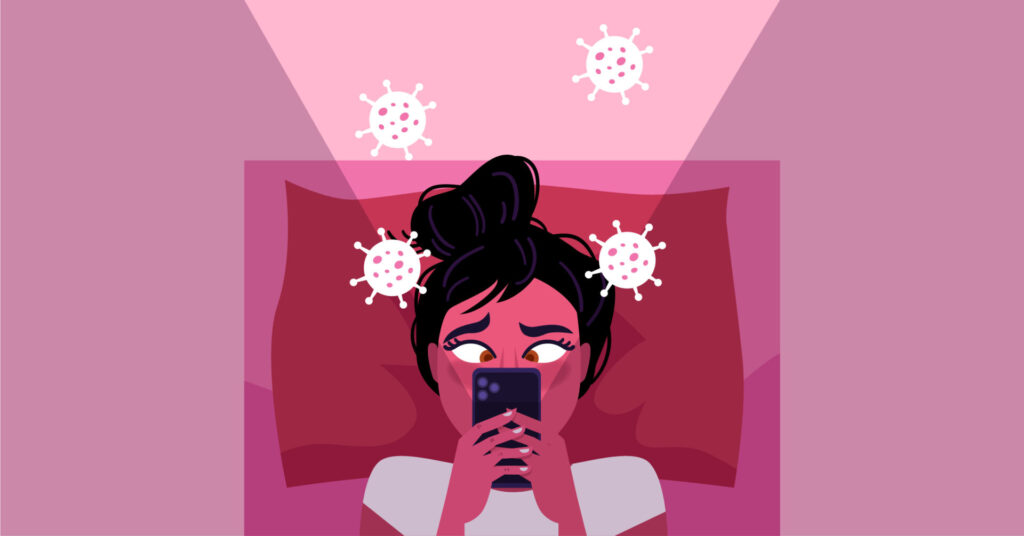Covid–19 has been the traumatising pandemic of recent times and not only harmed people physiologically but the after effects have evident psychopathological symptoms. The pandemic has been like a burning wildfire that has not only burnt the humans’ emotions like it does to trees but the smoke left behind have destroyed them mentally.
The most common psychological challenges faced by a huge chunk of population post covid-19 are depression, anxiety, frustration, guilt, shame and excessive worrying due to physiological treatments that led to change. The aura of the pandemic has deeply affected the majority of the population on a psychological level. The loneliness, grief and anxiety caused by isolation and a sudden change in lifestyle have taken a toll on the mental health of people.
There have been various types and causes of grief and pain. Although the spectrum of melancholy is wide, there is always a way out of it. Let us understand the techniques of coping and dealing with grief and anxiety that has occurred as a result of Covid – 19 and take a step towards betterment.
Ways to deal with Grief and Anxiety post pandemic:
Acceptance
Loss of a loved one might lead the griever to live in disbelief or denial. It is important to acknowledge and accept reality. It is tough to learn to live without loved ones, but this is the important stage to help ourselves out of that emotional void. Acceptance gives us strength and lays a foundation for healing further.
Express and share
It is necessary to find ways of expressing your emotions associated with the loss. Sharing the grief story with other people who you feel are close enough will help you lighten your heart and release the burden of overwhelming feelings you possess in your mind.
Connect for help
Grievers should always remember that asking for help and connecting with professionals or support groups is a normal and rather most effective way of coping with grief. A support of a mental health professional will lead you to gain important insights and attain closure.
Break the loop
Losing a loved one or losing a job is a major change for a human being. These sudden changes that come unannounced might start pouring constant thoughts in our head. The questions of why/what if/how, can flow one after the other disturbing the mental wellbeing of a person. The anxiety that makes one overthink creates a constant loop. This loop of thoughts needs to be broken by channelizing them somewhere else. Giving your mind a different fodder to hog on, and hence keeping it engaged will defuse the flow of negative thoughts.
Keep it scheduled
Try following a fixed routine and have an organised schedule for yourself. Having a healthy diet regime will also help. Having a regular time for meals and sleep will regulate overall wellbeing. It will also eliminate the unnecessary and aggravating factors leading to negative thoughts and acquire a set of good habits instead. These things will help one cope up with the newly acquired pattern of life especially after losing a close one.
Create a ritual
Have a ritual to maintain for yourself where you can express in any form like art, dance, music, etc. Maintaining a regular diary where you can pour your heart out or read a book for some specific time will create a warm space for your mind to just be. This will keep the anxious thoughts away and act as a shield of relaxation against them.
Positive affirmations
Start believing and affirming in the direction that says you are going to be alright. It is what we feed our minds with that reflects in our actions. Giving yourself positive affirmations and reading or talking about positivity, harmony, peace and wellbeing will help you deal with anxiety.
One needs to understand that a pandemic has been cruel enough to take lives but that is totally out of our charge and that we cannot control it. Living by the memories of our loved ones is always an available option but it also involves being mindful and living in the present moment. Prioritising your personal wellbeing and restarting your life is the revised plan which all of us have to adapt to. Grieving is normal and is a natural process and so is seeking help for it. Validating your thoughts and emotions will empower you to rejuvenate life.
Read More:
How to Deal with Guilt? Here are The 10 Useful Tips You Should KnowPostpartum Depression and Its Long Term Effects on Children
Teen Depression: Symptoms of Depression in Teens
10 Ways to Cope with Depression?
Postpartum Depression and Its Long Term Effects on Children
The Other Side of Motherhood: Postpartum Depression (PDD)
Postpartum Depression: Symptoms, Causes, Risks and Types
Psychotherapies to Treat Depression





